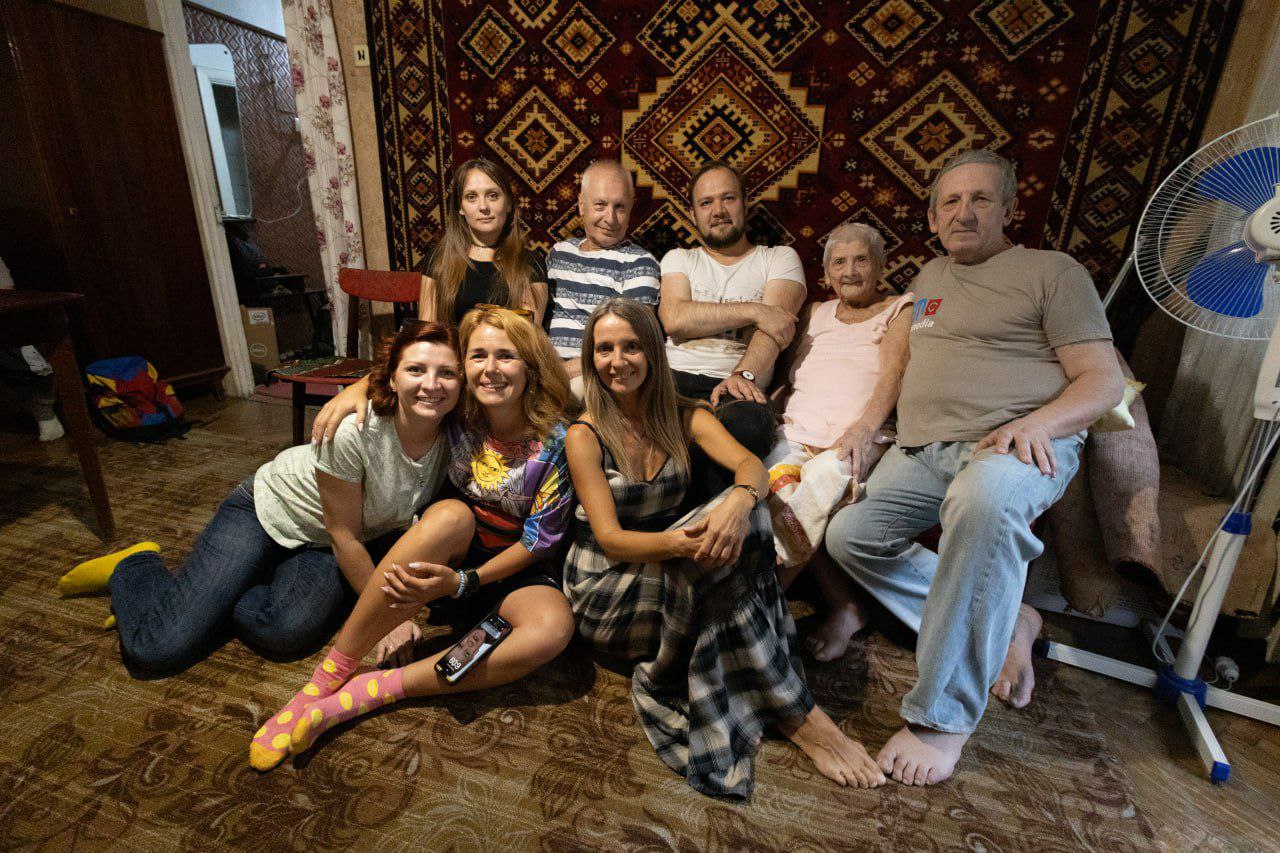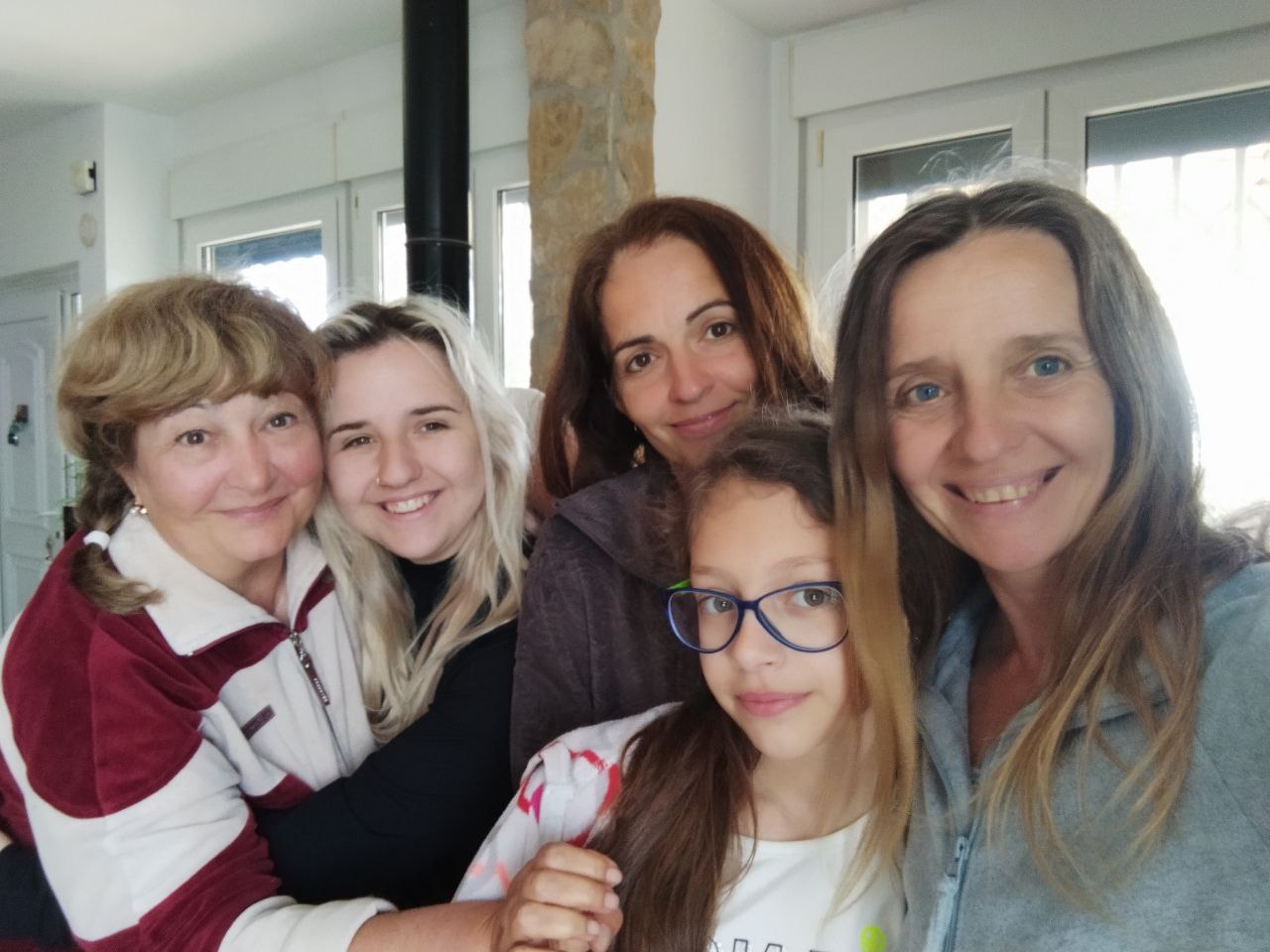
Oksana Stomina is a Mariupol-born poet whose husband was taken captive, hometown razed and occupied, and family split apart as a result of Russia's full-scale invasion.
"It was a real miracle to flee Mariupol. Not everyone could."
Sheltering inside a basement as Mariupol was under siege, she penned poem after poem to express the feelings that were overwhelming her. This included grief as her husband was taken captive. As of now, he's been in Russian captivity for 1,5 years.
"It is just terrible, as he is an intelligent person who has done nothing wrong. I can only imagine how hard it is for him, and, of course, it's very hard for us and for his parents."

Now only his mother remains alive, and he doesn't even suspect that his father couldn't get through this horrible war, through his son's captivity.
Despite her own deep pain, Oksana also empathises with the suffering of others around her.
I take every loss very close to my heart. There are no 'other' Ukrainians for me. All Ukrainian people who die are my Ukrainians, and my heart is bleeding. I feel this pain on a physical level.
The people whose stories she listens to are from all across Ukraine, but many of them are from Mariupol like her. When Mariupolans come together, Oksana says, she feels that they might not have the city physically right now but it still exists.
"We always support each other. If our locals open up a cafe somewhere, every Mariupolan goes there to show solidarity and talk. When we, people from Ukraine, and especially from Mariupol, are abroad, it can be quite uncomfortable to talk with us. We often bring up the war or what happened to our city."

Oksana has always been tightly connected to Mariupol by her nature. There, she founded a local NGO called Paper Stairs, which organized a variety of social, literary, and charitable projects. They were often centered around Ukrainian literature, history, and Mariupol itself. Many of the NGO's activities were focused on children and extended to schools and educational institutions.



Oksana not only treated the city with love but never stopped discovering her hometown and returning to it from afar. And while Mariupol may yet wait for Oksana to return, some of her close people can't.
"I keep in touch with several friends who now live in Mariupol. These people are elderly, they are artists who simply could not get out of the occupied city, as it was very, very hard. They got in touch with me long after I had fled. For a very long time, I didn't even know if they had survived."
The messages she gets from them are infrequent and are often triggered by emotionally intense circumstances. The plea for support from the residents of Mariupol remains resounding: "Tell us Ukraine will come," they say. "We cannot live like this anymore. Tell us Ukraine is fighting for Mariupol."
Oksana says that these people need to hear these words to keep going. And, by writing so, she adds, they risk their lives, believing it's worth it anyways.
Messaging, however, or even talking on the phone does not satisfy Oksana as a form of communication with her family. But it is the only one they now have due to the war.
"My extended family, including my husband's parents and mine, siblings, uncles, used to live together and meet frequently. We lived in the same city, and it was important for us to stay gathered. Now, the togetherness is gone. We are really far away from each other, so we aren't as happy as before."

Those emotions, though, serve as a basis of her unstoppable poetry which, she says, awakens her at night. Oksana considers it her form of therapy, straightforwardly channeling recent events and experiences into her work.
"It's crucial for me to talk about our defenders and civilians in captivity, about Russia violating the Geneva Conventions, about captives dying in Russian hands, about the torture and inhumane treatment, about the terror attack in Olenivka, and about the peculiar response from the International Red Cross ..."
Oksana is not the only person to seek healing this way. Mariupolans in particular have been burdened with with layers of tragedy that keep them from finding peace even after fleeing. Thus, they write about Mariupol until they can write again living in it, keeping the city alive at least in their hearts and words.
